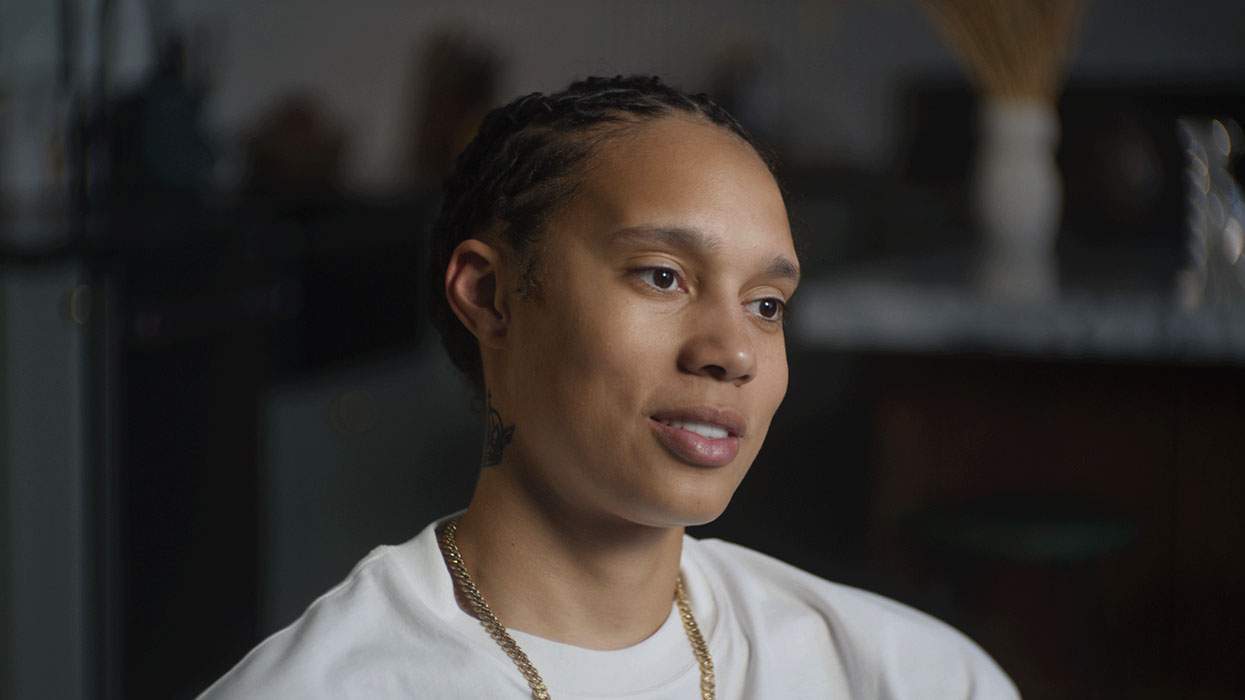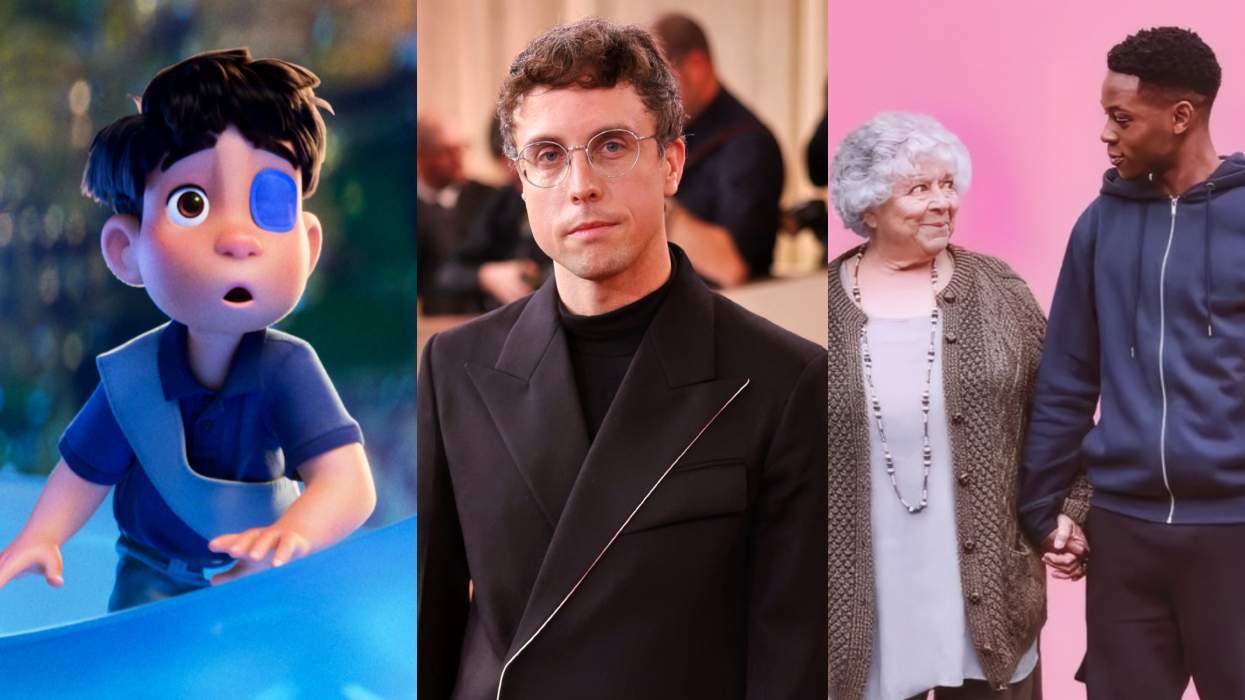On a winter's night, Jaidah Christina Davila is reflecting on her days as a contestant on TV's American Idol in 2013. She appeared on season 12 of the singing competition using a masculine first name and a gender-fluid presentation.
"I was a force to be reckoned with," Davila says. Her Idol performance of Adele's "Rumor Has It" proved that.
And as a fan, she says she knew what to expect: "Twelve years of watching the show and seeing how they pull people who look ridiculous and sound ridiculous, well, they were surprised that I could actually sing.
"I wish they allowed America to really, really like me. I could've blown up, could've become something," Davila tells The Advocate. Her voice is tinged with regret about how producers of the Fox reality series packaged her for the television audience.
"They showed this gay boy," the singer says, describing how she felt at the time. "I was willing to give them diversity, show some light."
Although it's been two years since she sang on the Idol stage as an androgynous man named Josh JDA, post-transition Jaidah Christina is feeling good about her recent decision to live full-time as a woman, beginning on her 30th birthday, January 1. She chose her middle name, Christina, to honor one of her inspirations, Christina Aguilera.
"This is my life, not a 'lifestyle,'" she says.
Davila first revealed her decision to transition in a January interview with The TV Page, saying she had been on hormone replacement therapy since August 2013.
She tells The Advocate she draws a lot of support from her "close small amount of friends who have stood by me." But she says it has been difficult getting others to understand.
"I have to explain what trans is, as opposed to cross-dressing and drag. A lot of people don't want to take time to care or understand. Well, I can't change their minds if they don't want to listen."
The transition was not a shock to her mother, she says. "I've been exposing this femme side of me since I was 15, so she's not shocked. She knows I cross-dressed leading up to this. She's not using my name or the right pronouns, and I'm not sure why. I guess she is not willing to let go of her son. It used to bother me but not anymore; I am accepting myself."
Those who do have trouble accepting her transition may be thinking of what she told LGBT journalists from her hometown, Chicago, about her first encounter with Nicki Minaj when she auditioned for Idol.
"She wanted to understand how to address me, so she wanted to ask if she could call me a 'he' or a 'she,'" Davila told Windy City Times in February 2013. "I told her to call me a 'he' because I am a boy. I don't have any desire of going under the knife and changing my gender, by any means," she said in the 2013 interview. Davila said much the same thing to Red Eye Chicago that same year: "I just wanna be really feminine and embrace my femininity and not be afraid of it or suppress it, you know?"
And she certainly did not suppress it. While the Idol producers had control over her song choices, she says she insisted on choosing her own style, her "outrageous" clothing, and her distinctive persona: "I took control. They didn't tell the true story about me, because I didn't give them that typical cliche androgynous look. I told them it's more of a combination of Boy George/David Bowie/George Michael."
In 2013 she explained that combo in the interview with the Windy City Times. "I just want to utilize this androgynous image as a tool to grab your attention before I even open my mouth to sing so when I do sing you match the image with voice and then you have a whole package."
And in a season 12 "Road to Hollywood" interview posted by the show on YouTube, Davila said American Idol gave her an opportunity "to represent androgyny."
But unlike most of her Idol competitors, Davila says she was not interested in having her life offstage captured for the show, especially if she was out with another man. "I didn't allow those cameras to follow us and create a drama," she says, admitting she didn't mix well with the other contestants.
"They're very self-centered, all about themselves. After all, they're trying to make it and I'm trying to make it. I quickly realized none of them are my friends." And she remains estranged from the other season 12 contestants to this day.
Davila painfully recalled the experience of being sent home from the show, in the Las Vegas round.
"Getting eliminated was really sad. You know you're the loser and they're the winners," Davila said. "As soon as you got eliminated, half an hour later they make you sit you down with a psychologist. But then I was told I had to catch a plane, so I really didn't have time to think. 'Gotta go go go!'"
Backstage, producers handed her a microphone and asked her to record her thoughts about being eliminated, while they were still fresh, and posted it on YouTube. "It's OK to be you. Be you," she said, choking back tears. "Trust the voice within."
And once the show was over, she says she felt she could no longer deny who she was. "I got scared, really scared," she tells The Advocate about beginning transition. "It had nothing to do with the person who I was; it was being looked at as 'Josh from Idol.' I was scared of rejection, of going into the workforce, the HR office, and what a Google search on me might reveal."
Davila, a native of Monterrey, Mexico, still calls Chicago home. She recently decided to quit performing at a popular LGBT nightclub and is now searching for a new direction.
"I am still coping," she says. "It's not as intense as in 2013, after Idol, but it is really hard going back to regular life."
And that's when her veneer of confidence began to show a tiny crack for the first time in this conversation, her words now soaked in regret, but also honesty.
"I am very dissatisfied with where I am today because of my lack of supportive affirmation behind me. I have support from my friends," Davila says. "But I don't have professional encouragement to help me do something with myself." The spark that Idol turned into a bonfire was extinguished soon after her elimination.
"I had people make promises and they disappeared," she says, the feeling of betrayal evident in her tone. "I don't feel special any more. I try to keep momentum, and I want people to know even though I wish I could go back in time and do it differently, I still have a vision, to be a recording artist.
"Not just a trans recording artist. A recording artist," she says, definitively. "I want to use my voice and my experience, find a platform that will encourage others. I'm no beacon of hope, but I do want to be someone people can look to and say, 'If she can do it, I can do it.'"
Her role model, Davila says, is Carmen Carrera, who transitioned after a starring role on Ru Paul's Drag Race. "I want to show it is possible to have talent, to sing, to make music, for people to love you for what music you make, and not hate you for what you are, she says."
For the second time in our conversation, Davila laments what she cannot change. "I wish I could go back and do it all over again, be more classy, more sophisticated. But at the end of the day, I know you have to find people who appreciate you for who you are.
"I have to develop an idea and make it happen. I dream every day, but I need to put the work in. I am excited for what this year is going to bring."
Click below for a rough sample of Davila's first professional effort since Idol, "I'm Falling Hard."















Charlie Kirk DID say stoning gay people was the 'perfect law' — and these other heinous quotes
These are some of his worst comments about LGBTQ+ people made by Charlie Kirk.